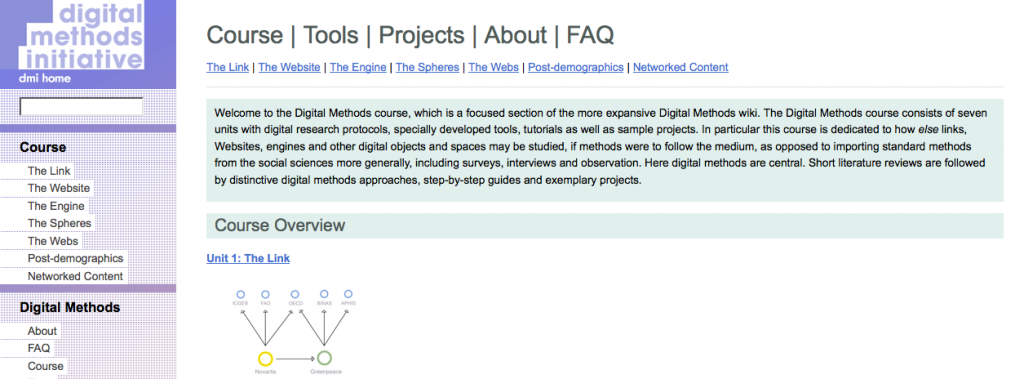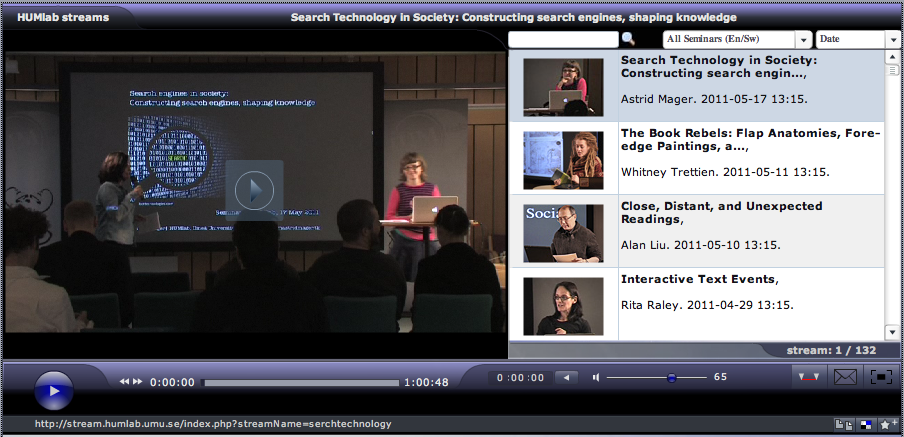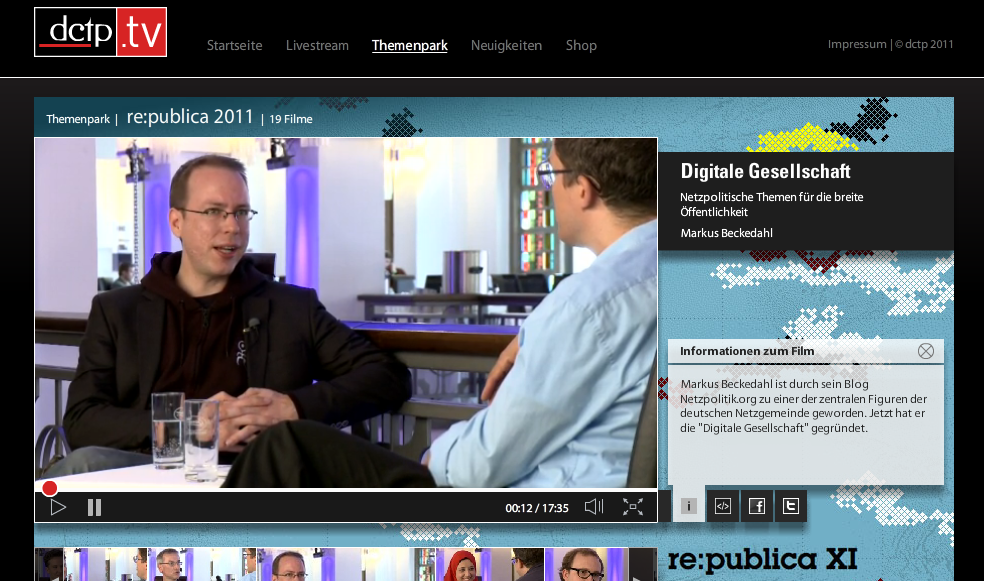I just arranged my trip to Amsterdam to attend the 5th Digital Methods Summer School organized by Richard Rogers and colleagues. The questions that will be addressed this year are the following (according to the summer school website):
In the 2011 Digital Methods Summer School we will pay homage to cyberspace, in the opening, by presenting thought on a particular strand of media coverage about WikiLeaks, where cybergurus and cyberwar experts reappear on the scene. Just as importantly, we will ask, how to make use of the leaks, and their containers, for research purposes? From data-driven journalism to bespoke cablegate engines, does WikiLeaks spawn an online ecology of tools, visualizations and other substantive practices and outputs? Is such an ecology typical for data platforms? For comparative purposes, we will introduce and study the tool and visualization universes of Twitter as well as Wikipedia, both of which are examples of data-rich media. We would like to learn from platform media analytics and apply it to other data-rich media, so as to further develop tools for cultural diagnostics. One challenge is the question of device effects. For example, when comparing the Serbian, Croatian and Bosnian Wikipedia entries for the Srebrenica Massacre, does Wikipedia’s “neutral point of view” policies overdetermine the content, perhaps neutralize it, or can one read culturally distinctive views on the events?
Another strand of study is networked content, which is thought of as online content held together, maintained or even co-authored by software and bots. The interplay of search engines and content interests us this year, not just because Wikipedia articles are routinely at the top of Google results. (The relationship between Google and Wikipedia remains understudied.) But there is also content seemingly authored for engines first and readers only second, as in the case of “demand media.” We would like to study efforts that seek to fill in engine results with content, reopening the question of engine epistemology. Presentations will include work on engine log analysis. Apart from (Google) flu trends, are log analyses able to identify and geo-locate cultural and political preference?

More infos on the summer school and some sort of online tutorial on the methods and visualization tools used – such as the Issuecrawler identifying and visualizing link networks – may be found on the Digital Methods Initiative Website or on the Website of the Govcom.org Foundation.
I’m especially interested in the second cluster of questions since I’ll further pursue my research on search engines and their information political implications while being at the summer school. Concretely, I’ll investigate how the controversy around biofuels plays out in search engine results, a project I’m working on together with Jenny Eklöf from the Umeå Studies in Science, Technology and Environment. In this project we basically aim to analyze how search engines structure and stage the controversy, what actors succeed in occupying one of the “top ten seats” and what their positions on the issue are, and what conclusions may be drawn in terms of search engine politics and the commercialization of information. In addition, I’d like to compare search engine results with other web spheres such as Google news, blogs, and social networking sites and their way of ordering, filtering and hierarchizing information on biofuels making use of all the fancy “digital methods” and tools.
I’m already looking forward to the summer school and to work with Richard and his wonderful team again! Not to speak of lovely Amsterdam..






